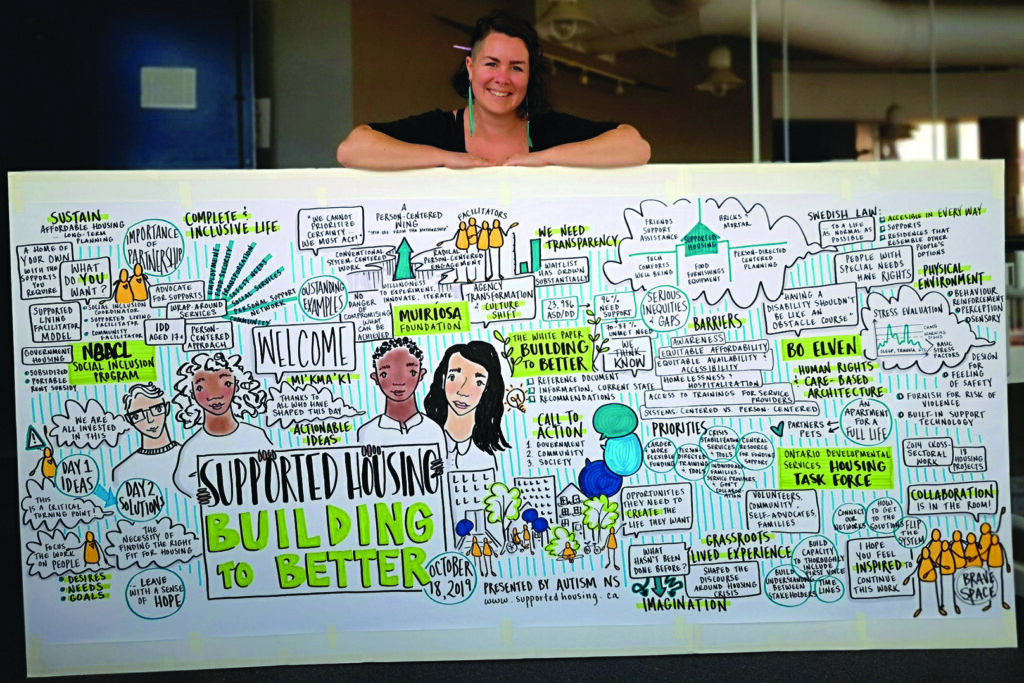Housing Survey
A Survey: Understanding the Housing Needs and Desires of Autistic People in Nova Scotia
Meeting the Housing Challenge Downloads:
Executive Summary: Meeting the Housing Challenge
Full Report: Housing Needs and Desires for Autistic Nova Scotians
Supported Housing Event Summary
Overview
In 2021, Autism Nova Scotia and Dr. Karen Foster of Dalhousie’s Rural Futures Research Centre conducted a housing needs and desires survey of Autistics in Nova Scotia.
This survey was opened to anyone with Autism who lives in Nova Scotia and was at least 16 years old. Caregivers and support networks were welcome to complete the survey as a support for an Autistic respondent.
Respondents answered approximately 60 questions.
What was the Survey About
This research explored housing needs and desires or wants of autistics in Nova Scotia. Its sought to provide autism service providers, housing and supports providers and government understand the range of housing needs and wants among Autistics, so that they can better plan housing development and supports that meet the needs and wants of Autistics. This survey was designed to ask questions about individual’s and their support networks experiences with housing, where and how you want to live in the future, and what challenges you see in the way of what you want.
How Individuals Could Complete the Survey and Why
For those who required assistance to complete the survey, researchers and Autism Nova Scotia ensured there were several options of supports available. Respondents could:
1) Have someone (a caregiver, parent, or support person) help answer the questions (online or in-person);
2) Ask someone (a caregiver, parent, or support person) to help fill out the survey on their behalf;
3) Use a phone call option to have a researcher call directly and ask the questions, taking answers over the telephone;
4) Complete the survey on paper, mailed or emailed and printed for return;
5) Pick up a print copy at any Autism Nova Scotia office across the province
This survey complied with research ethics standards upheld by the Dalhousie Research Ethics Review Board, which identified no risks for participating.
The benefits of the research were to help create a better understanding of the views, experiences, challenges, and hopes that people on the autism spectrum have about housing and supports. Survey responses were an opportunity to reflect on and make sense of experiences, and to figure out what kinds of housing options were right for an individual. Finally, the survey was meant to create a base of evidence that could contribute to the knowledge of experts, government and service providers who work in the Nova Scotia housing environment. For access to the survey and questions about its findings and conclusions can be directed to Dr. Karen Foster at 902-233-0912 or email karen.foster@dal.ca
